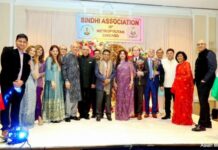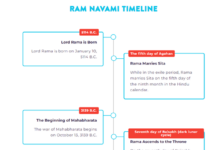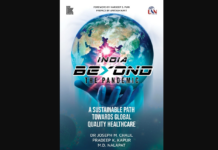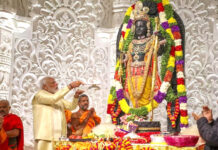 CHICAGO: Members of the Indian community at large in USA have expressed satisfaction that British Broadcasting Corporation has agreed to be fair to Hindus in its programming and observed that “our aim is to be fully inclusive”.
CHICAGO: Members of the Indian community at large in USA have expressed satisfaction that British Broadcasting Corporation has agreed to be fair to Hindus in its programming and observed that “our aim is to be fully inclusive”.
BBC response was in the light of a representation by a group of Hindus led by Rajan Zed that BBC should be broadcasting more Hindu programs by dedicating more hours to Hinduism.
David Larner, Complaints Advisor, BBC Audience Services, e-mailed to Rajan Zed, president of Universal Society of Hinduism, that “Contrary to what has been reported in some quarters, we are actually intending to do more religious programming overall in the future that is more programs around Christianity and more on other faiths as well.”
“That being the case, there is absolutely no question of an ‘either/or’ situation in relation to our future religious output whereby one particular faith or belief is not reflected – our aim is to be fully inclusive”, Larner added.
According to a recent report in The Sunday Times, “The BBC is too Christian in its religious output, according to an internal review, and should increase its Muslim, Hindu and Sikh programming”. Rajan urged BBC Director-General Lord Tony Hall to seriously and honestly look into this and increase broadcasting of Hinduism related programs and issues substantially on BBC TV, radio and online.
BBC, being “a public service broadcaster funded by the license fee paid by UK households”, including the Hindu households, should have been more responsible and inclusive in its religious programming.
It should not ignore “other” faiths in its content and productions, and across its various channels and
BBC had labeled “yoga” as “fad” in 2013. But Yoga has been gaining favor across the globe and in USA with close to 40 million following Yoga practices regularly. BBC also labeled Hindu festival of Holi as “filthy festival” in 2012 to which it apologized later.
BBC has been blamed in the past for racism, imperialist stance, Indo-phobic bias, anti-Hindu bigotry, anti-American bias, etc. Rajan urged Fairhead to thoroughly investigate this matter as the Trust stated that “the license fee places a duty on the BBC to serve all audiences” and “our job is to get the best out of the BBC for license fee payers”.
Hinduism was highly underserved at BBC. There is a need for more airtime at BBC for live aarti and other broadcasts from major Hindu temples in UK. BBC should also ensure adequate coverage of Diwali, Holi, Krishna Janmashtami, Maha Shivaratri, Ram Navami, Ganesha Chaturthi, Navaratri, Dussehra, Hanuman Jayanti, Makar Sankranti, Yugadi and other Hindu festivals, Zed had added.
Hymns from ancient Sanskrit scriptures, contemporary bhajans and Hindu sermons should regularly form part of BBC One’s 53 years old “Songs of Praise” program, one of the world’s longest-running religious television series. Hindu hymns, songs and faith stories were also highly inspiring, warm and engaging; and moreover, God liked all songs-of-praise, irrespective of the religion these came from, Rajan contended.
Madhu Patel






